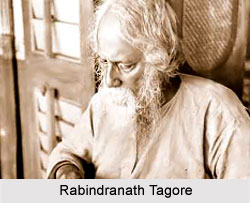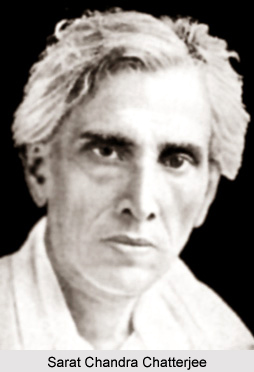 Bengali literature in the early twentieth century was rather different from the literary achievements of the earlier era. In the earlier period, Bengali literature was enriched by the fruits of the Bengal Renaissance which led to the birth of several new genres and modes of literary expression. The various literary forms- novel, short story, epic poetry, journalese prose, and Western-style drama all matured independently in the nineteenth century in the hands of various talented writers who became both pioneers and, some of them, the first masters of those genres. However, by the turn of the century, a kind of conservative smugness set in. The British colonial policy of divide and rule had successfully segregated the Hindu and Muslim communities among the Bengali, which, in turn, led to the rise of religious orthodoxy and rigidity, especially on the Hindu side of the population. Reactionary journals like the Bangabasi, led by people like Jogendrachandra Basu and Indranath Bandyopadhyaya, were vociferous in their expressions of Hindu orthodoxy and efforts at enforcing a Hindu hegemony over all aspects of Bengali culture. Among the few who resisted this regressive, reactionary trend was the greatest writer of Bengali literature, Rabindranath Tagore, who had started writing regularly from the last quarter of the nineteenth century. He was one of the few independent progressive thinkers of the twentieth century and in his works were seen a free circulation of a variety of opinions and ideas.
Bengali literature in the early twentieth century was rather different from the literary achievements of the earlier era. In the earlier period, Bengali literature was enriched by the fruits of the Bengal Renaissance which led to the birth of several new genres and modes of literary expression. The various literary forms- novel, short story, epic poetry, journalese prose, and Western-style drama all matured independently in the nineteenth century in the hands of various talented writers who became both pioneers and, some of them, the first masters of those genres. However, by the turn of the century, a kind of conservative smugness set in. The British colonial policy of divide and rule had successfully segregated the Hindu and Muslim communities among the Bengali, which, in turn, led to the rise of religious orthodoxy and rigidity, especially on the Hindu side of the population. Reactionary journals like the Bangabasi, led by people like Jogendrachandra Basu and Indranath Bandyopadhyaya, were vociferous in their expressions of Hindu orthodoxy and efforts at enforcing a Hindu hegemony over all aspects of Bengali culture. Among the few who resisted this regressive, reactionary trend was the greatest writer of Bengali literature, Rabindranath Tagore, who had started writing regularly from the last quarter of the nineteenth century. He was one of the few independent progressive thinkers of the twentieth century and in his works were seen a free circulation of a variety of opinions and ideas.
Bengali Drama in Early Twentieth Century
 The professional theatre industry flourished in Kolkata in the twentieth century. There were a number of plays being written during this time, covering a wide variety of subjects from historical to social to mythological. Among the famous playwrights during this period are Girish Chandra Ghosh, Amritalal Basu, Dwijendra Lal Roy and others.
The professional theatre industry flourished in Kolkata in the twentieth century. There were a number of plays being written during this time, covering a wide variety of subjects from historical to social to mythological. Among the famous playwrights during this period are Girish Chandra Ghosh, Amritalal Basu, Dwijendra Lal Roy and others.
Bengali Prose in Early Twentieth Century
In the twentieth century there was a lot of thought-provoking literature in the field of Bengali literature. There were a number of noted novelists and short story writers who emerged in the field of Bengali literature during this time. One of the most noted novelists, Sarat Chandra Chatterjee, was a product of this era. He wrote a number of well-known works during this time which were translated into a number of different languages as well due to their immense popularity. Some of his most famous works include Debdas, Parineeta etc which have also been made into movies. Other noted writers of this era include Ramendrasundar Tribedi, Aksaykumar Maitreya, Nirupama Debi etc.
Bengali Journals in Early Twentieth Century
Bengali journals continued to flourish in a big way in the early twentieth century. Journals had always formed an important part of Bengali literary work, and in the early part of the twentieth century there was seen the publication of newer journals such as the Sabujputra etc. There was also seen the revival of older journals such as the Bharati. A number of views and opinions were mentioned in the journals, and the most important role which the journals performed is that they provided the first platform for the future writers of literary works to express themselves.
Bengali Poetry in Early Twentieth Century
There was not seen as much of a flourishing of Bengali poetry in the early half of the twentieth century as was the case with other literary forms like prose and drama. There were a chosen few poets who contributed towards poetry in this period, chief among them being Satyendranath Datta and Priyambada Deb.
Thus the literary achievements of the early twentieth century, though flavoured in a kind of regional bias instigated by the British policy of divide and rule, were still rather substantial.













